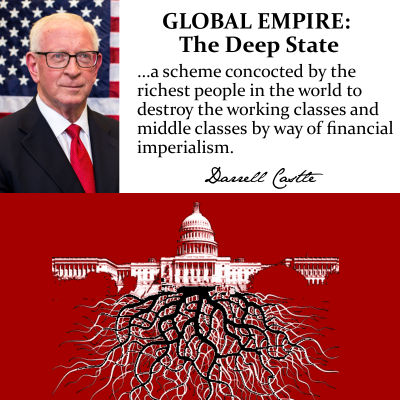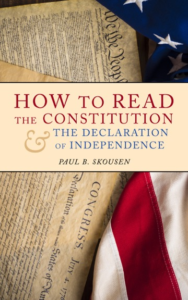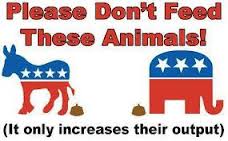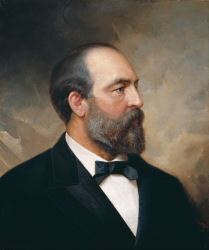
THEOCRACY and the CONSTITUTION PARTY
I have become increasingly concerned with the comments on Facebook and other Internet sources which seem to indicate that the majority of the national leadership of the Constitution Party, and particularly members of the National Executive Committee, are pursuing an agenda of promoting a theocratic government for our country. Though I cannot speak for each person individually, I can certainly speak for the large majority of the both the Executive and National Committee members.
The argument stems from the preamble of the national platform which states and I quote
“The Constitution Party gratefully acknowledges the blessing of our Lord and Savior Jesus Christ as Creator, Preserver and Ruler of the Universe and of these United States.”
Comment is also made of the platform statement “The goal of the Constitution Party is to restore American jurisprudence to its Biblical foundations and to limit the federal government to its Constitutional boundaries.”
Those who feel the party leadership is promoting a theocracy for our government would do well to give careful study to the writings and minutes kept by James Madison and other Founding Fathers who attended and participated in the Convention in Philadelphia that produced the Constitution. Thirty four percent of the quotes presented at the convention were from Biblical sources and yet that body of men did not even consider that their new government would be a Theocracy. So why then was the Bible so often quoted by these men in the Constitutional Convention?
They were among the wisest and most well-versed men in history to ever meet as one body and they fully understood that the principles taught in the Bible were the source of good and sound government. First and foremost, they understood that our rights came from our Creator and not from the laws of man. In addition to the 10 commandments, they were fully aware of the many other concepts of good government whose origin came from both Old Testament (Jewish history) and New Testament (Christian writings) Among those records were the concepts of Representative Government; the right of an accused to be heard by a jury of his peers; the understanding that men are innocent until proven guilty; the concept that the truth of a matter had to be witnessed by at least two and preferably more witnesses, Also established in those histories was the right to own and to protect one’s property; that the best government came from the bottom up and only those matters that could not be decided locally should be brought up to be considered at a higher level. The list could go on and on. These were based on the premise of self-government by a moral and virtuous people. These concepts are the basis of Common Law and the Laws of Nature. Again, the Founders clearly understood that the government they gave us could survive only among a virtuous and moral citizenry.
This necessitated that for the Constitution to be a successful form of government for a free and liberty loving people, we as a people must be a moral and virtuous people, a characteristic of a God-fearing people. The Founders fully understood the dangers of a state religion that controlled the governments in Europe, but they likewise understood the importance of religion in fostering and furthering the concepts of good government. One of the stipulations of the Northwest Ordinance of 1785 was that religion be taught in those territories. Now the teaching of religion in the public schools is forbidden. How far we have strayed from what the Founding Fathers envisioned for our nation!
Over and over again, the Founders recognized the hand of Providence in both freeing ourselves from British Rule and in the drafting and adopting of the Constitution. George Washington alone listed 76 times in which the hand of Providence intervened in behalf of the colonies. They readily understood that without such help, our nation would have never been possible. Why we as Americans cannot recognize that, and acknowledge the need for that same Providential assistance in restoring that government that the Founding Fathers bequeathed us is of grave concern to me.
The principles promoted by the party are good and praise worthy and in time they hopefully will be achieved. But for any of us to think those goals can be reached without each of us incorporating virtuous values in our individual lives is hoping for something that can never happen. Acknowledging the Hand of Providence in our party’s preamble is only fitting. The does not mean that the wording in the preamble cannot be changed. The party leadership is open to such a consideration, but to exclude reference to Providential assistance in the freeing of our nation from Britain and the establishment of the Constitution is a disservice to the Founding Fathers as well as the founders on the Constitution Party. That would be akin to turning our backs on history.
Promoting the sound concepts of good government given to us by the Founders is totally different than promoting a theocratic government. Whose interpretation of the scriptures is correct? That is something that the various theologians and religious leaders are free to discuss, but under no circumstances are they to be imposed on the citizens of our nation by the force of government. The Founders of our nation were totally opposed to that approach as are the majority of the national and executive committee members of the Constitution Party. These things are to be self-imposed and the Founders well understood it. The leadership of the Constitution Party is in full accord with this understanding.






